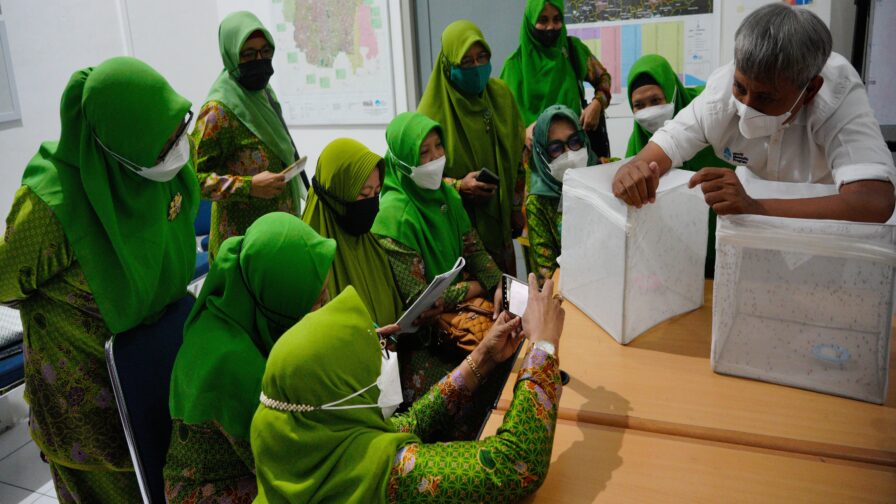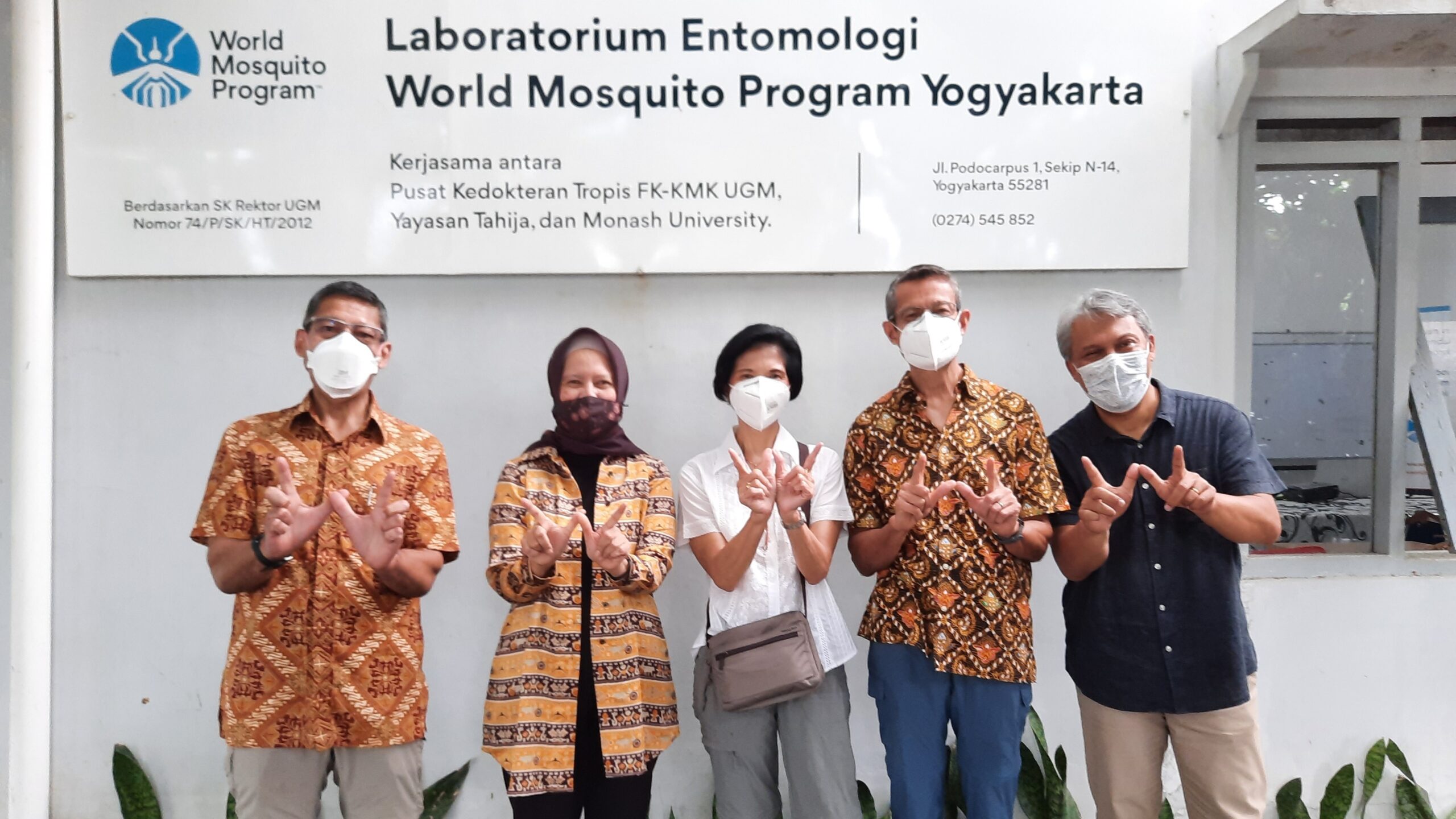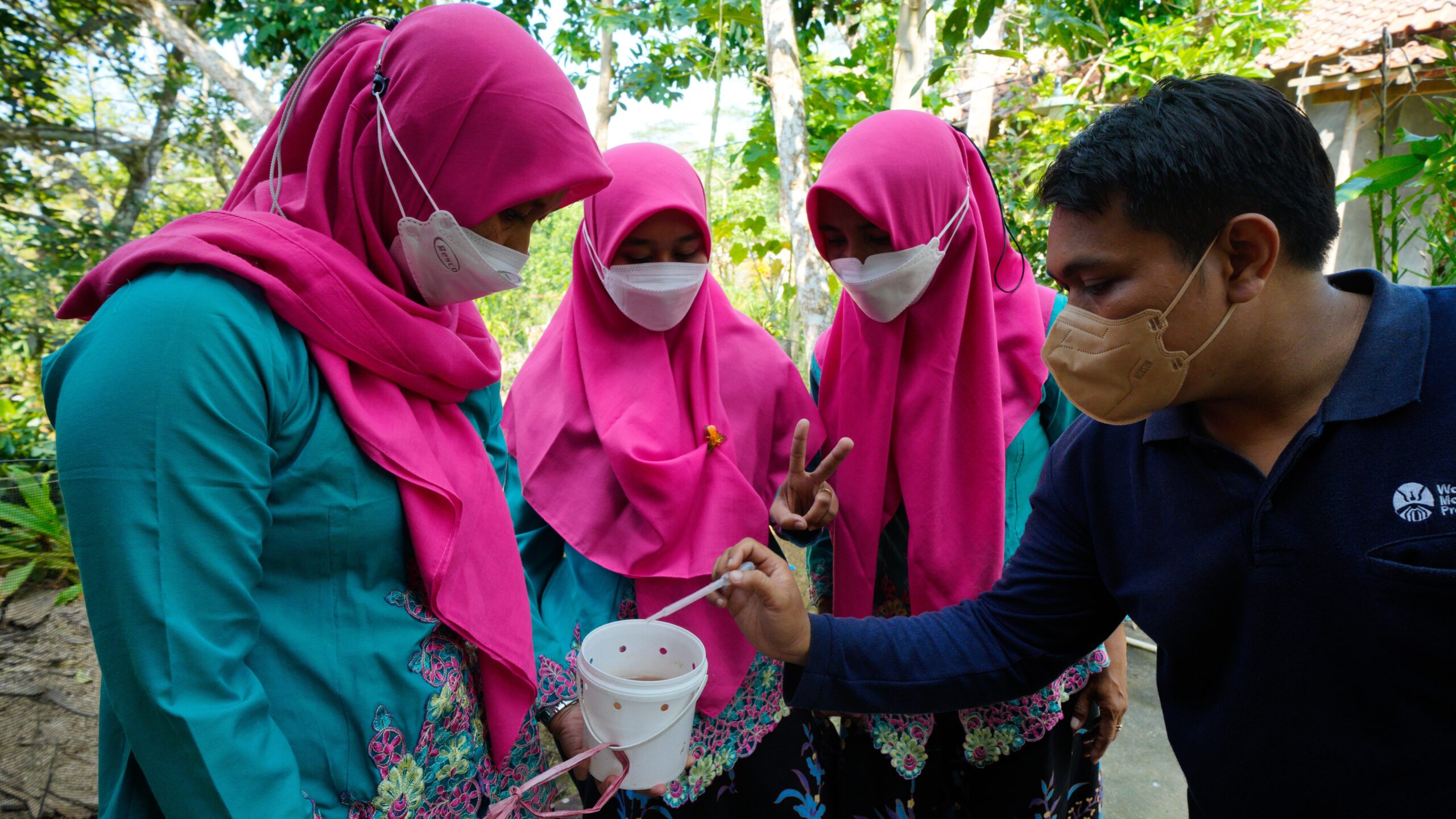
Venture Capitalism and Strategic Philanthropy in Action: George Tahija’s Fight Against Dengue
By David Buie-Moltz
George Tahija (MBA ’86) isn’t your typical philanthropist. Beyond his impactful contributions to the University of Virginia Darden School of Business, including the establishment of the Tahija Arboretum and expanding global learning opportunities, the Indonesian businessman has taken an unconventional approach to public health — helping release bacteria-infected mosquitoes to curb the spread of dengue fever in his home country. As co-founder of the Tahija Foundation, he has supported this innovative and high-stakes initiative, demonstrating that business principles and ethical leadership can drive profound social impact. This work, now documented in Defeating Dengue: A Multistakeholder Approach to Problem Solving — a new book co-authored by Darden Professor Ed Freeman and Andrew Sell, a former senior researcher in Darden’s Institute for Business in Society — is a powerful example of how venture philanthropy can tackle some of the world’s most pressing challenges. In this conversation, Tahija discusses the journey that led him from the boardroom to the forefront of global health, the lessons he’s learned and what’s next for his foundation.
What inspired you to start your philanthropic work, especially with the Tahija Foundation?
My family was directly impacted by dengue fever, a widespread disease in Indonesia. Living in a developing country with limited government resources compelled the family to act. The Tahija Foundation’s mission has always been to address gaps where the government cannot reach. The Wolbachia method we supported offered a solution with the potential for lasting impact.
How did your time at Darden shape your view on the role of business in society?
Darden was transformative. It pushed me out of my comfort zone and taught me that business isn’t just about profit; it’s about creating value for all stakeholders — employees, customers, communities and the environment. This perspective has guided my work ever since.
How have you applied the stakeholder approach in your work?
The stakeholder approach is integral to everything we do at the Tahija Foundation. In the World Mosquito Project, we didn’t just impose a solution; we involved the community. We recruited 5,000 volunteers, mostly women, who became the backbone of the project, educating their neighbors and deploying Wolbachia-infected mosquitoes. Their engagement was key to the project’s success.
What role did the Tahija Foundation play in the World Mosquito Project?
The Tahija Foundation was the sole funder of the project in Indonesia. We provided financial resources, management expertise and strategic direction, ensuring precision in execution. The results were remarkable — dengue cases in Yogyakarta dropped by 77% and hospitalizations by 86%. The Indonesian government has now adopted the method into its national strategy.
What were the biggest challenges in the dengue project, and how did you overcome them?
Gaining community trust was a significant challenge. The idea of releasing more mosquitoes, even to combat dengue, met with skepticism. We spent time engaging with the community, explaining the science and addressing concerns. Another challenge was navigating bureaucratic hurdles to get government approval. Rigorous scientific research, clear communication and persistent advocacy helped us overcome these obstacles.
Why did you choose to work with Ed Freeman and Darden on documenting this work?
Ed Freeman has been a friend and mentor for years. When the dengue project was still in its early stages, he saw its potential as a powerful case study. Collaborating with Ed and Darden to document this story in the book Defeating Dengue was a natural fit, allowing us to share our journey and inspire others.
What has been the most rewarding outcome of the dengue initiative?
Seeing the tangible impact on people’s lives is incredibly fulfilling. Reducing dengue cases and making communities safer has been rewarding on a personal level. For the Tahija Foundation, the fact that the Indonesian government is scaling up this method nationally is a testament to the project’s success. It’s a legacy we’re proud of.
What’s next for the Tahija Foundation?
Our next major focus is climate change, particularly community-based mangrove conservation and rehabilitation. This project will help protect the environment while providing social and economic benefits to communities. The lessons we learned from the dengue project, like the importance of community engagement, will be directly applicable to this new initiative.
What advice do you have for Darden alumni and potential donors?
Give back in whatever way you can. Philanthropy isn’t just about writing a check; it’s about using your skills, knowledge and resources to make a difference. Your Darden education has given you the tools to create positive change — don’t let that go to waste. The impact you can have is far greater than you might imagine.
The University of Virginia Darden School of Business prepares responsible global leaders through unparalleled transformational learning experiences. Darden’s graduate degree programs (MBA, MSBA and Ph.D.) and Executive Education & Lifelong Learning programs offered by the Darden School Foundation set the stage for a lifetime of career advancement and impact. Darden’s top-ranked faculty, renowned for teaching excellence, inspires and shapes modern business leadership worldwide through research, thought leadership and business publishing. Darden has Grounds in Charlottesville, Virginia, and the Washington, D.C., area and a global community that includes 18,000 alumni in 90 countries. Darden was established in 1955 at the University of Virginia, a top public university founded by Thomas Jefferson in 1819 in Charlottesville, Virginia.
Press Contact
Molly Mitchell
Senior Associate Director, Editorial and Media Relations
Darden School of Business
University of Virginia
MitchellM@darden.virginia.edu






